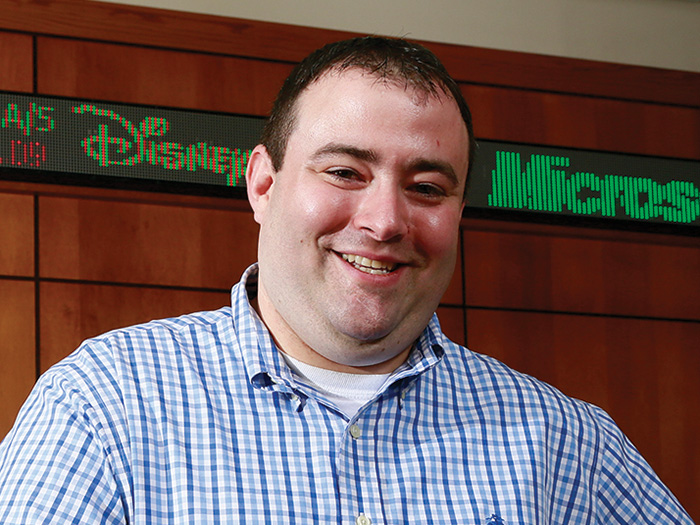View From the Bench
Workers Comp Docket

Comp Recipient Can’t Sue Company for Refusal to Hire Her
Yardley v. Hospital Housekeeping Systems, LLC, No. M2014-01723-SC-R23-CV (Tenn. 08/21/15)
Ruling: In a case of first impression, the Tennessee Supreme Court held that a job applicant did not have a cause of action under the workers’ compensation law against a prospective employer for failure to hire her.
What it means: In Tennessee, a job applicant does not have a cause of action under the workers’ compensation law for failure to hire if the prospective employer declined to hire the applicant because she filed a workers’ compensation claim against a previous employer.
Summary: A housekeeping aide for a hospital was injured at work and received workers’ compensation benefits. She performed light-duty work for another hospital department. The hospital entered into a contract with Hospital Housekeeping Systems for the hospital’s housekeeping services. As part of its contract, the company agreed to interview the hospital’s housekeeping employees and at the company’s discretion hire the employees to continue in their positions. The company hired most of the hospital’s housekeeping staff. When the aide was released to full duty, she sought to return to her housekeeping job. The company’s division vice president allegedly told her that it would not hire anyone receiving workers’ compensation benefits. In an email, the vice president said that bringing the aide on board would be “a workers’ comp claim waiting to happen.” After she was not hired, the aide sued the company. The Tennessee Supreme Court held that the aide did not have a cause of action under the workers’ compensation law against the company.
The court explained that an employer cannot lawfully discharge a worker for filing a workers’ compensation claim. The court pointed out that the workers’ compensation law applied to employers and employees. Here, the aide was not an employee but a job applicant. Therefore, the company had no obligation to her under the workers’ compensation law.
The aide argued that if employers could lawfully refuse to hire applicants because they filed or were likely to file workers’ compensation claims the action would have a chilling effect on workers’ decisions to file claims. The court found the alleged harm was too speculative to justify an exception to the employment-at-will doctrine.
The aide also asserted that the second injury fund is intended to encourage the hiring of workers who suffered previous injuries by relieving employers of part of their workers’ compensation liability. The court could not find a legislative intent to allow applicants who had previous injuries to sue prospective employers for failure to hire.
Initial Injury Must Be Significant Contributing Cause of Subsequent Injury
Washington County School District v. Labor Commission, No. 20130847 (Utah 08/25/15)
Ruling: The Utah Supreme Court held that to recover workers’ compensation benefits for a subsequent non-workplace injury, a worker must establish that the initial workplace injury was a significant contributing cause of the subsequent non-workplace injury. The court sent the case back to the Labor Commission to determine whether a bus driver met the standard.
What it means: In Utah, to recover workers’ compensation benefits for a subsequent non-workplace injury, a worker must establish that the initial workplace injury was a significant contributing cause of the subsequent non-workplace injury.
Summary: A school bus driver for the Washington County School District suffered a back injury when he fell down the steps of his bus. He underwent surgery and received workers’ compensation benefits for the injury. Later, the driver was reinjured when a child jumped onto his back and knocked him to the ground at a local festival. He required additional surgery for the second injury. The driver sought workers’ compensation benefits. The administrative judge with the Labor Commission determined that his second injury was causally linked to his workplace injury and awarded benefits. The district appealed. The Utah Supreme Court held that to recover workers’ compensation benefits for a subsequent non-workplace injury, a worker must establish that the initial workplace injury was a significant contributing cause of the subsequent non-workplace injury. The court sent the case back to the commission to apply the appropriate standard.
The court explained there must be a meaningful causal link between the initial workplace injury and the subsequent non-workplace injury in order for the worker to recover workers’ compensation benefits for the second injury. The court said that the commission provided compensation for a subsequent injury if there was any causal connection between the two inquiries even a very minor connection. The court explained that it did not believe the legislature intended to include any and all subsequent injuries that were in any way causally connected to the workplace injury.
The court declined the district’s invitation to adopt a standard requiring a greater than 50 percent causal connection between the two injuries to provide compensation. The court explained that this standard was not supported by the plain language of the workers’ compensation law.
Employer Doesn’t Have Right to Request Change of Worker’s Physician
Clark Construction Group, Inc., et al. v. District of Columbia Department of Employment Services, et al., No. 14-AA-464 (D.C. 08/20/15)
Ruling: The District of Columbia Court of Appeals held that an employer did not have the right to request a change of an injured worker’s attending physician.
What it means: In the District of Columbia, an employer does not have the right to request a change of an injured worker’s attending physician.
Summary: A construction worker for Clark Construction sustained work-related injuries. He sought medical treatment for his physical injuries and also received psychiatric care. His doctor diagnosed him with major depression.
The worker was reevaluated by Clark’s physician, who diagnosed him with depressive disorder and “possible” bipolar disorder and believed that the worker’s depression and anger manifested as physical pain. Clark’s physician recommended additional treatment focused on anger control and new prescription drugs. Clark sought to change the worker’s treatment with his doctor.
The District of Columbia Court of Appeals held that Clark did not have the right to request a change of the worker’s physician.
The court rejected Clark’s argument that the Office of Workers’ Compensation had the authority to order a change of treating physician whenever it is in a worker’s best interests, regardless of which party brings the request. The court explained that the OWC has the authority to unilaterally order a change in a worker’s physician, but the law does not explicitly grant an employer or its insurer the right to request a change of the worker’s physician.
A worker has the right to choose his attending physician and can request a change of physician. The court found nothing in the law expressly giving employers the right to request a change of a worker’s physician.
A dissenting judge opined that the decision would “gag the employer” by prohibiting the employer from furnishing information that could be useful and compelling.
Driver’s Preexisting Hypertension Doesn’t Block Benefits
Marvel v. Roane Transportation Services, LLC, No. E2014-01252-SC-R3-WC (Tenn. 07/23/15)
Ruling: The Tennessee Supreme Court held that a driver was entitled to benefits for his heart attack.
What it means: In Tennessee, an extraordinary exertion or unusual physical strain is not required for a heart attack to be compensable. Furthermore, preexisting heart disease will not prevent a worker’s recovery for a heart attack.
Summary: A truck driver for Roane Transportation started to suffer chest pains while securing steel coils to the back of his truck. He tried to continue to the location for his scheduled delivery, but he had to pull over at a truck stop to seek help. Paramedics took him to a hospital for treatment where he was diagnosed with a heart attack. When he was discharged from the hospital, the driver learned that Roane terminated him because he was medically unable to drive a truck. The driver continued to experience chest, arm, and leg pain and had multiple fainting episodes.
The driver sought workers’ compensation benefits. The Tennessee Supreme Court held that his heart attack was compensable.
There was evidence from a physician that it was possible that the driver’s physical exertion could have contributed to his heart attack, but it was not the sole cause of the heart attack. The driver’s high cholesterol and hypertension were risk factors that also may have played a role. Another doctor noted that given the driver’s history of hypertension and high blood pressure, physical exertion was likely a “factor in creating the environment that provoked the heart attack.” The court found that the heart attack was causally related to the driver’s work activity.
The court also found that the driver’s fainting spells were causally related to his heart attack. Although there was a conflict of expert medical opinions, the court pointed out that there was no evidence that the driver had fainting spells before his heart attack.
The court concluded that the driver was permanently and totally disabled. The driver testified that he was only able to walk a quarter of a block before he had to rest. His medical restrictions prevented him from working any labor-intensive jobs similar to the ones he previously held.
Driver’s Employer-Paid Travel Is Within Course and Scope of Employment
American Casualty Co. of Reading, Pennsylvania v. Bushman, No. 04-14-00685-CV (Tex. Ct. App. 08/19/15)
Ruling: The Texas Court of Appeals found that a driver was acting in the course and scope of his employment when he was fatally injured in a car accident.
What it means: In Texas, a worker’s travel is not necessarily excluded by the coming and going rule if the worker’s transportation is paid for by the employer.
Summary: A truck driver for Salem Holding Co. was instructed to go to another city and spend a week training a new dispatcher. Salem was to reimburse him for his mileage and travel expenses, including lodging expenses. While driving his personal car on the way to the other city, he died in a car accident. The driver’s widow sought workers’ compensation benefits. Salem’s carrier, American Casualty, denied the claim.
The Texas Court of Appeals held that the driver was acting in the course and scope of his employment when the accident occurred.
American Casualty argued that the driver’s travel did not originate in Salem’s business and was not in furtherance of Salem’s affairs. The court found that the driver’s travel furthered Salem’s affairs because he was traveling for work at the time of the accident.
The court also found that the driver’s required work travel originated in Salem’s work, business, trade, or profession. The driver was not traveling by his own choice but was required to perform a job outside his ordinary job duties and away from his ordinary job site. The court rejected American Casualty’s argument that the driver was not on a special mission.
American Casualty argued that even if the driver’s travel originated in Salem’s business and furthered Salem’s affairs, the driver’s travel was excluded by the coming and going rule because he was traveling to work in his personal vehicle and reimbursement of his travel expenses was not a necessity from Salem’s perspective. The court explained that a worker’s travel is not necessarily excluded by the coming and going rule if the worker’s transportation is paid for by the employer. As Salem was to pay for the driver’s travel, his travel was not excluded from the course and scope of his employment.
Evidence Shows Causal Connection Between Comp Claim, Termination
Harris v. OHNH EMP, LLC d/b/a Wyant Woods Care Center, No. 27455 (Ohio Ct. App. 08/12/15)
Ruling: The Ohio Court of Appeals reversed a grant of summary judgment to an employer on a worker’s claim that he was terminated in retaliation for his workers’ compensation claim.
What it means: In Ohio, an increase in negative feedback a worker received after he filed a workers’ compensation claim can establish a causal connection between his claim and his termination.
Summary: A laundry/housekeeping supervisor for Wyant Woods Care Center had a positive 90-day performance evaluation. Less than two months later, he slipped and fell while assisting another employee with stripping the floor. He sustained injuries to his back, neck, and wrist and filed a workers’ compensation claim. He returned to work with restrictions. Two months after the injury, he was terminated. The supervisor alleged that Wyant Woods retaliated against him for pursuing a workers’ compensation claim. The Ohio Court of Appeals reversed a grant of summary judgment to Wyant Woods.
The court explained that the two months that passed between the filing of the supervisor’s workers’ compensation claim and his termination was not sufficiently close to establish causation. The supervisor presented additional evidence that Wyant Woods failed to follow its progressive discipline policy guidelines in terminating him and that he received negative reviews after his accident that he had not received before his accident. The supervisor also pointed out that Wyant Woods opposed his doctor’s request that he undergo an MRI. The day before he was terminated the supervisor was absent from work so that he could receive treatment for muscle spasms related to his injury. Also, he retained an attorney a week before his termination. The court found evidence to infer causation between his pursuit of workers’ compensation benefits and his termination.
Wyant Woods claimed that it terminated the supervisor because he had poor performance and failed to meet deadlines. The court found there remained an issue of fact regarding whether Wyant Woods actually terminated him for poor work performance. Wyant Woods said the supervisor had a history of unsatisfactory performance throughout his employment, but the spaces on his termination sheet to list prior discipline were left blank. Also, there was evidence that another supervisor who did not suffer a workplace injury failed to meet deadlines and was not terminated.
Work as Pizza Delivery Driver Doesn’t Cut Entitlement to TTD Benefits
The Harper Co. v. Zurborg, et al., No. 2014-CA-001844-WC (Ky. Ct. App. 08/14/15, unpublished)
Ruling: In an unpublished decision, the Kentucky Court of Appeals held that a laborer was entitled to temporary total disability benefits from the date of his injury until the date he reached maximum medical improvement.
What it means: In Kentucky, a worker is entitled to TTD until he reaches MMI and reaches a level that would permit a return to employment at the type of work he had been performing at the time of the injury.
Summary: A laborer for The Harper Company injured his back while unloading concrete forms. He immediately sought treatment in the emergency room and did not return to work after he was released from the hospital. Later, he was notified that he had been terminated by Harper. At the time, he also worked part time as a pizza delivery driver, although he said he was in pain and unable to work full time.
After an independent medical examination in which the examiner opined that the laborer’s herniated disk was causally related to the work incident, Harper began to pay temporary total disability benefits. Later, the Workers’ Compensation Board held that the laborer was entitled to TTD from the date of his injury until the date he reached MMI. The Kentucky Court of Appeals agreed with the board’s decision.
Harper argued that TTD benefits should not have been awarded before the date it began voluntarily paying benefits. The court explained that the laborer had the burden to prove that he was disabled from the time of his injury until he reached MMI. The court found that opinions by the laborer’s physician and the examiner established that he was unable to return to work after his injury despite the lack of restrictions included in earlier reports from other treating physicians.
Both the physician and the examiner opined that he could not return to the type of work he was performing at the time of the injury.
Harper also argued that the laborer should not receive TTD benefits because he was working as a pizza delivery driver during the time he was disabled. The court explained that the condition of TTD continues until the worker reaches MMI and reaches a level that would permit a return to employment. “Return to employment” was interpreted to mean a return to the type of work that was customary for the worker or that the worker had been performing before the injury. Here, the court found that pizza delivery was not the same type of work that was customary for the laborer before his injury. Therefore, his job as a delivery driver did not render him ineligible to receive TTD benefits.










